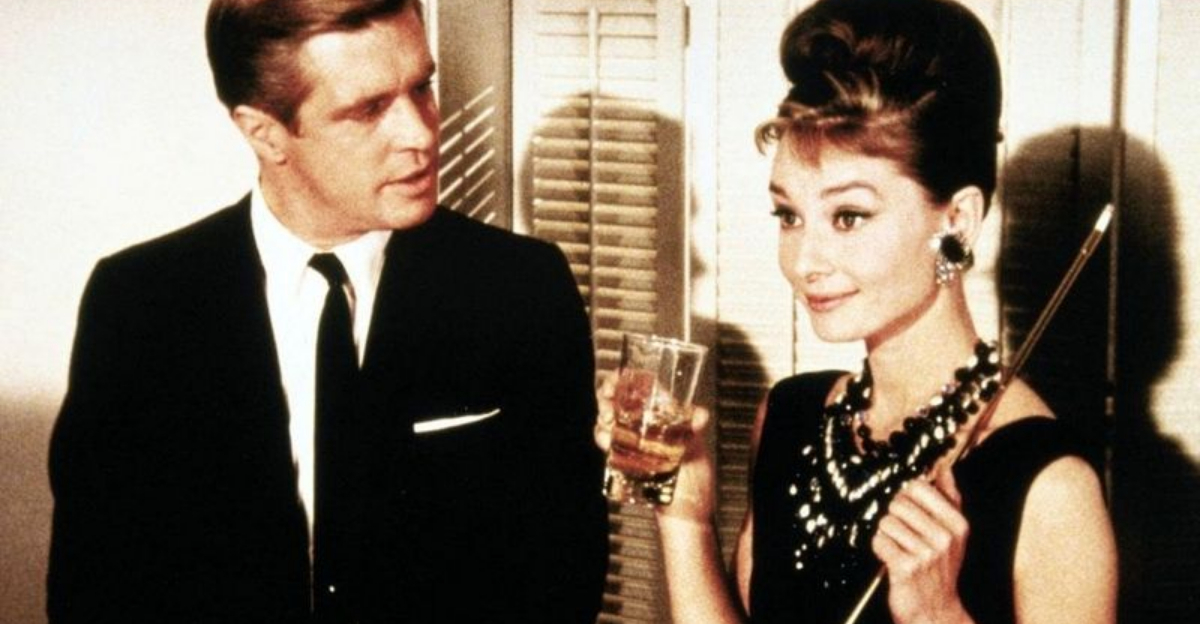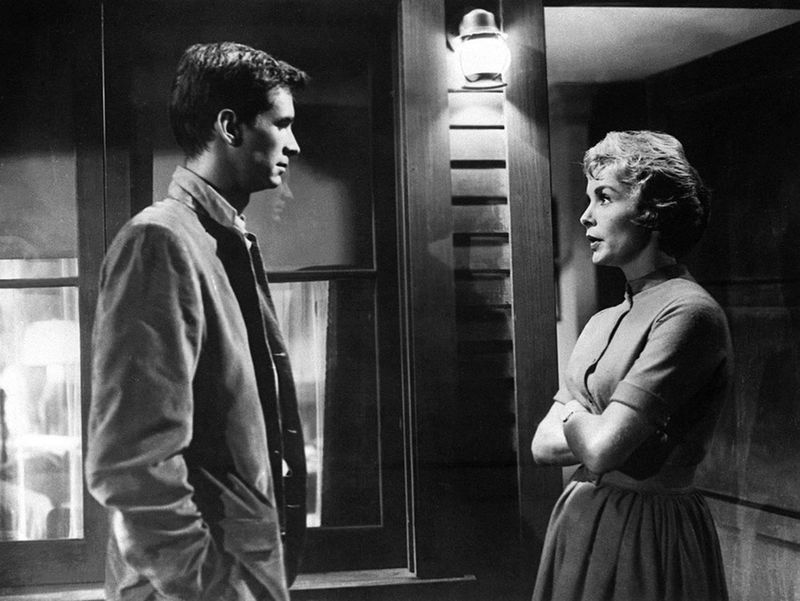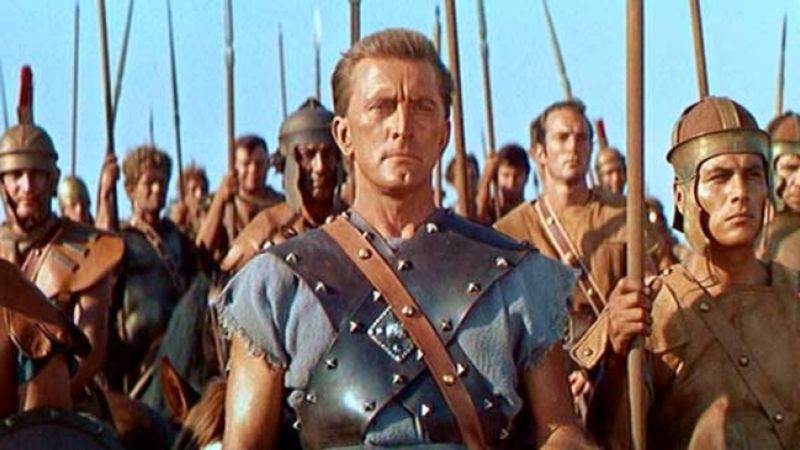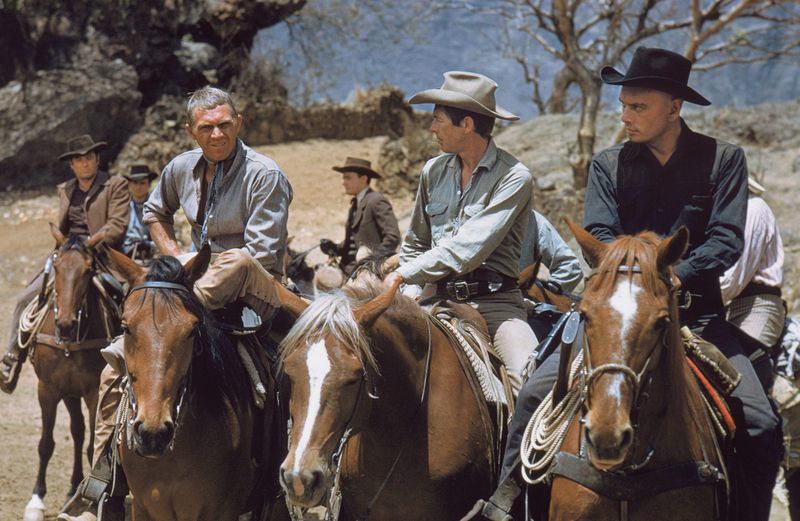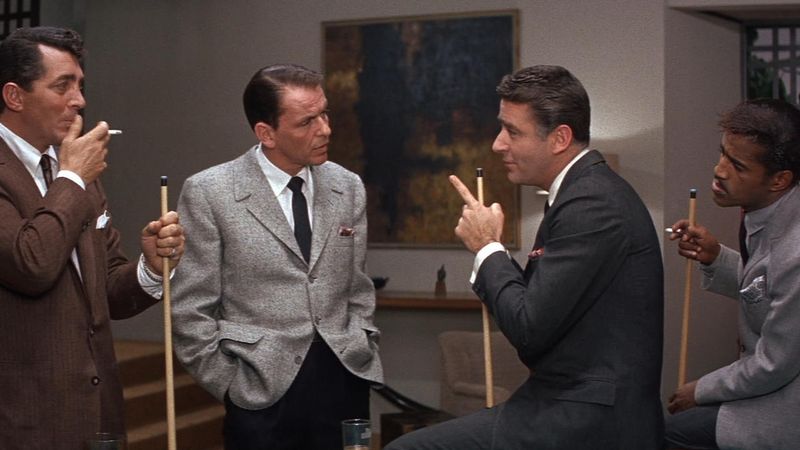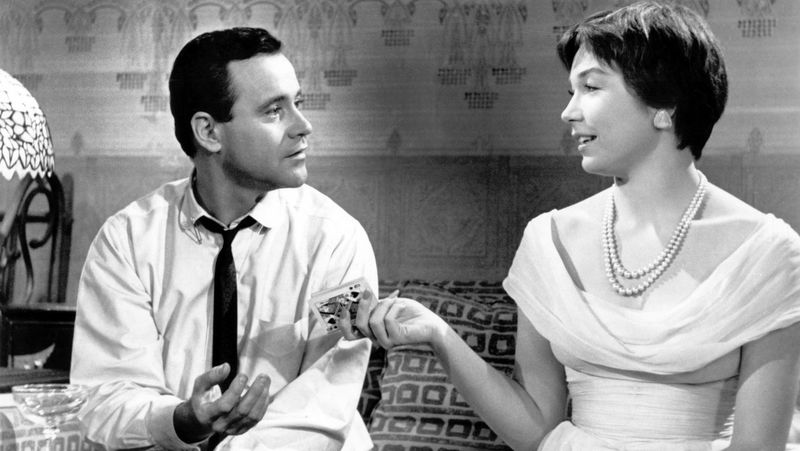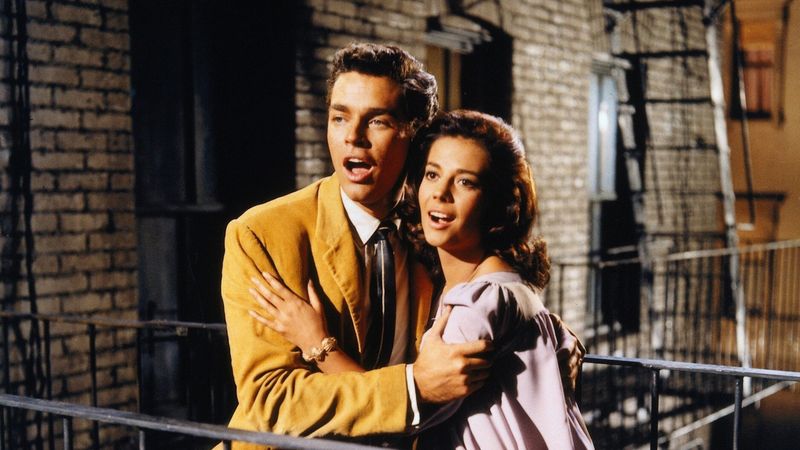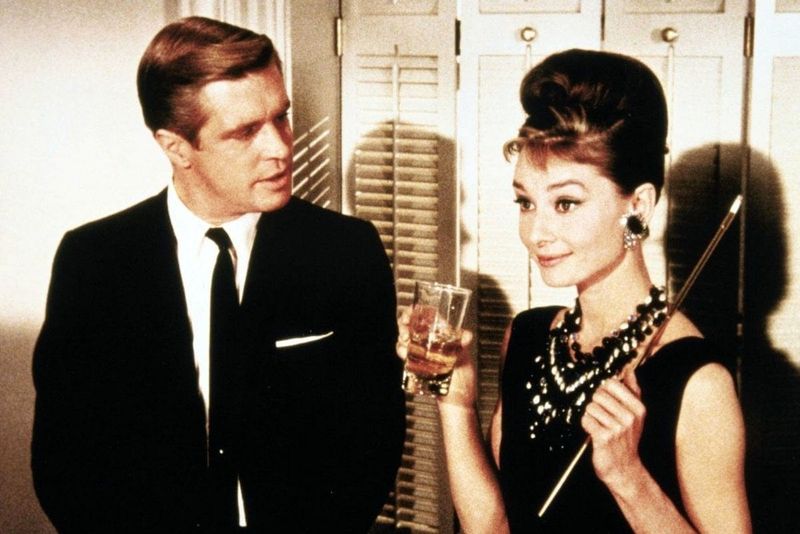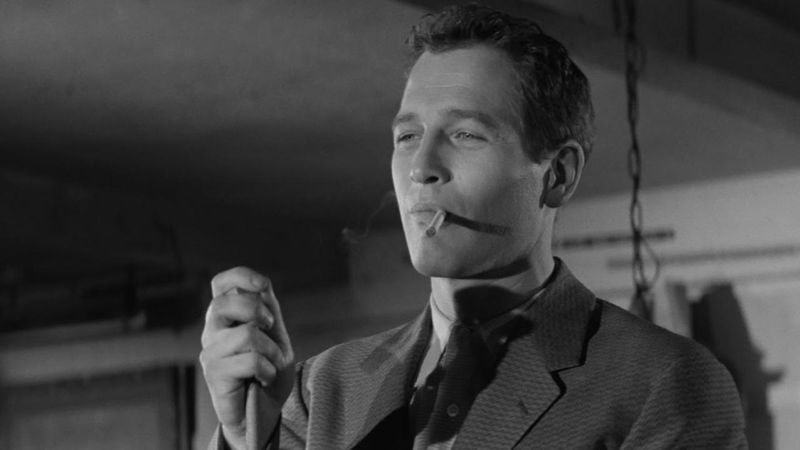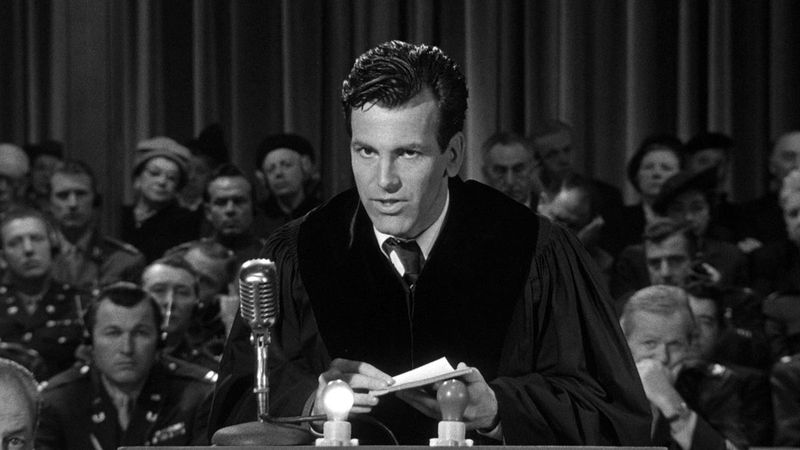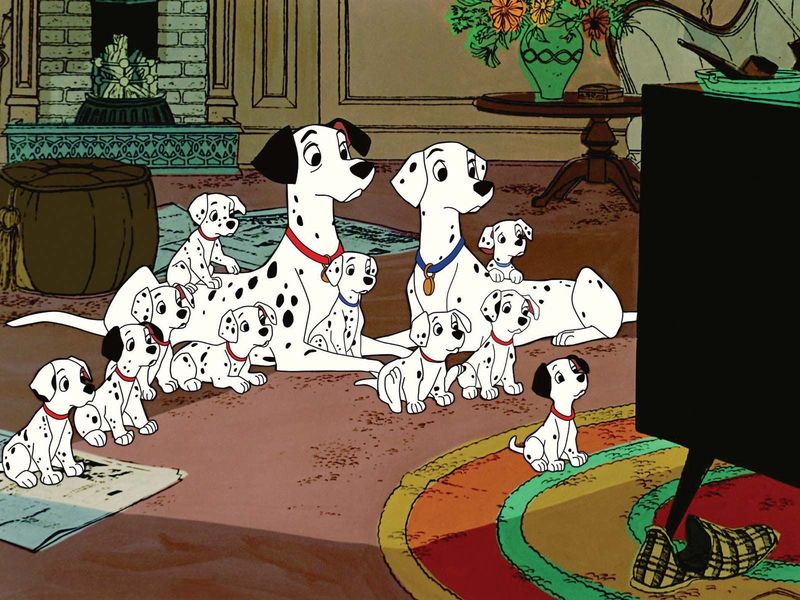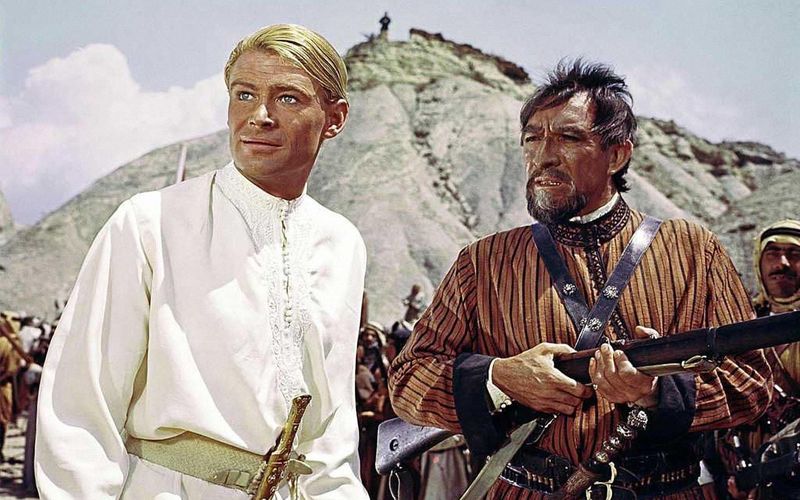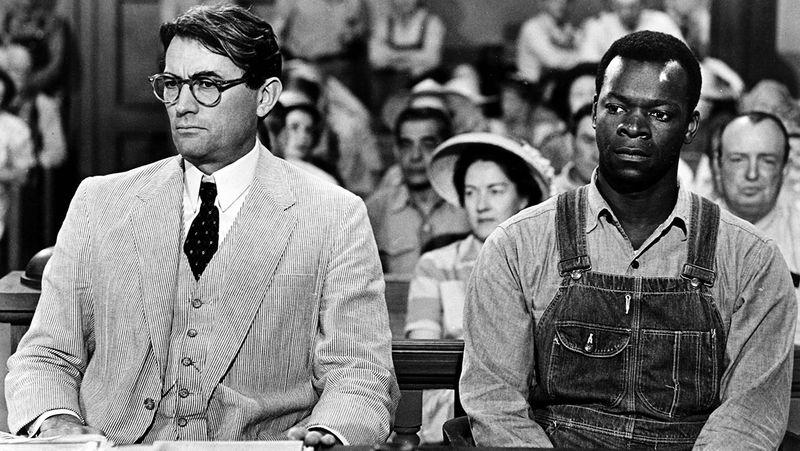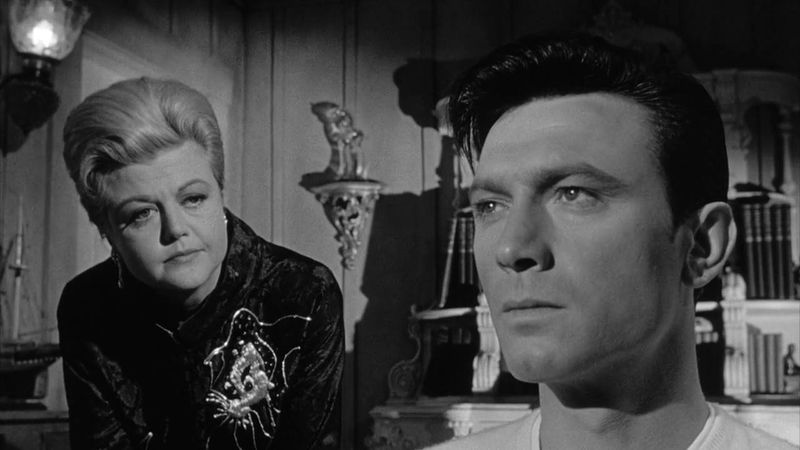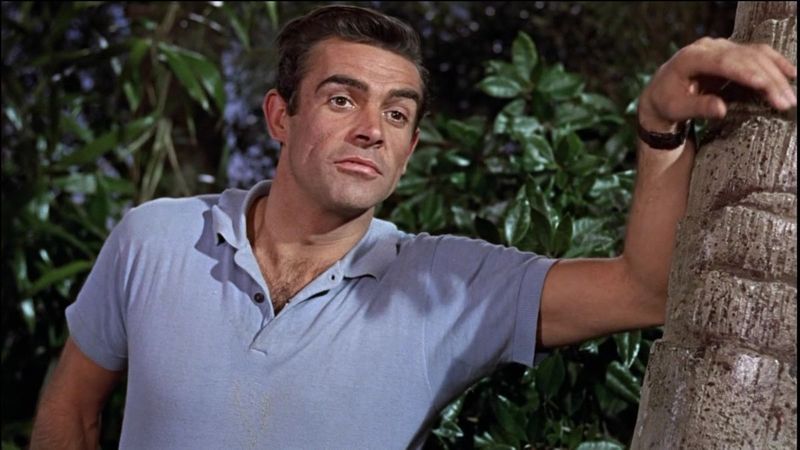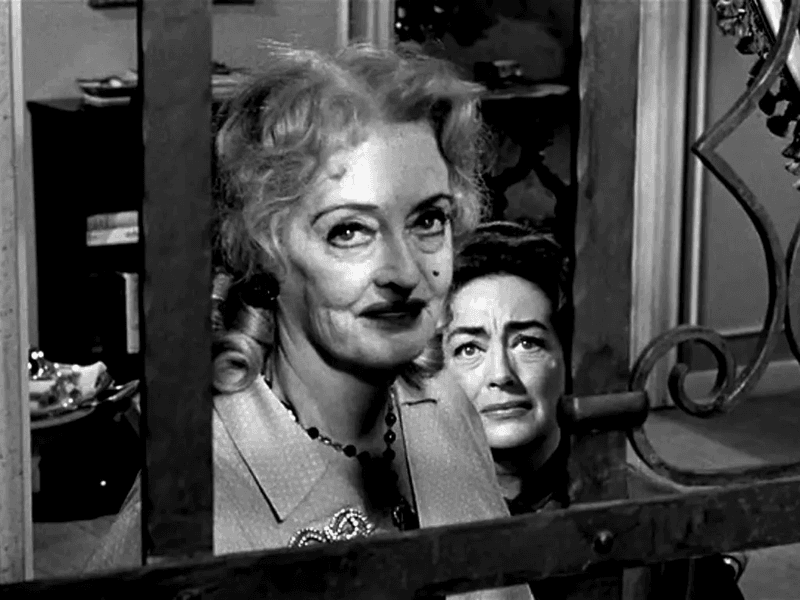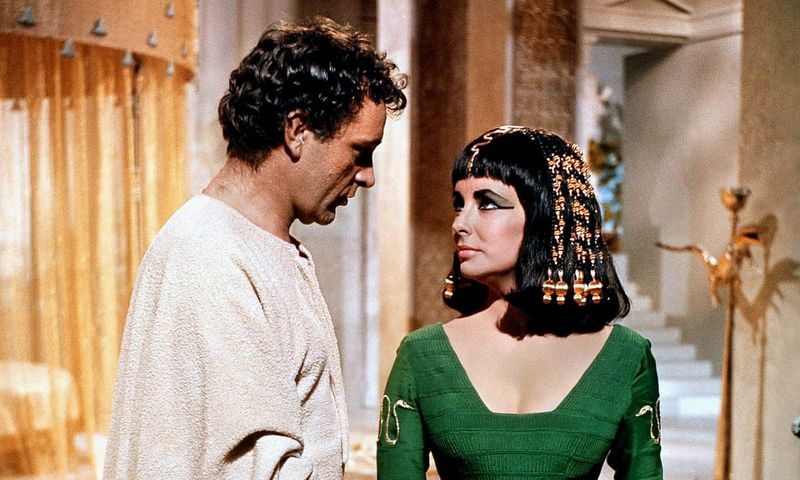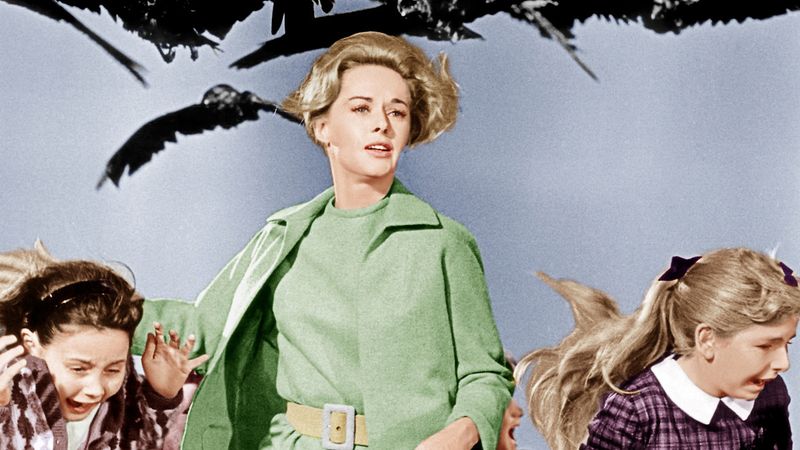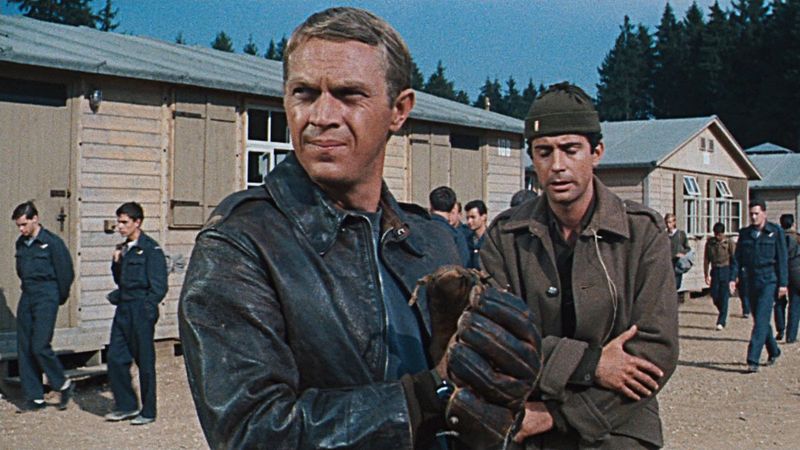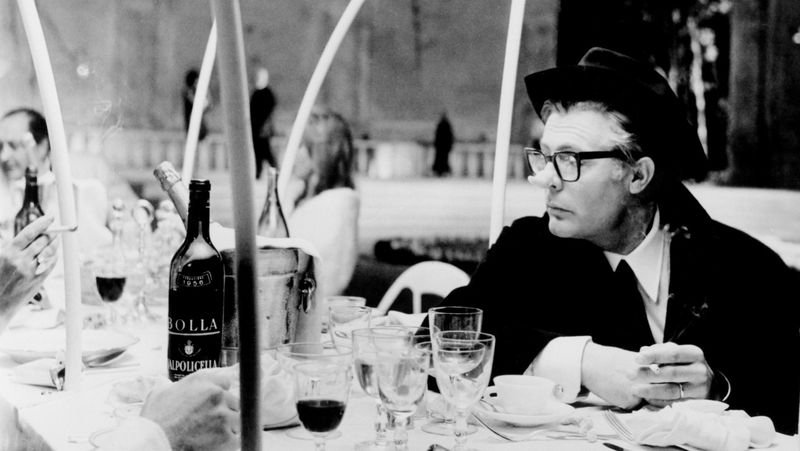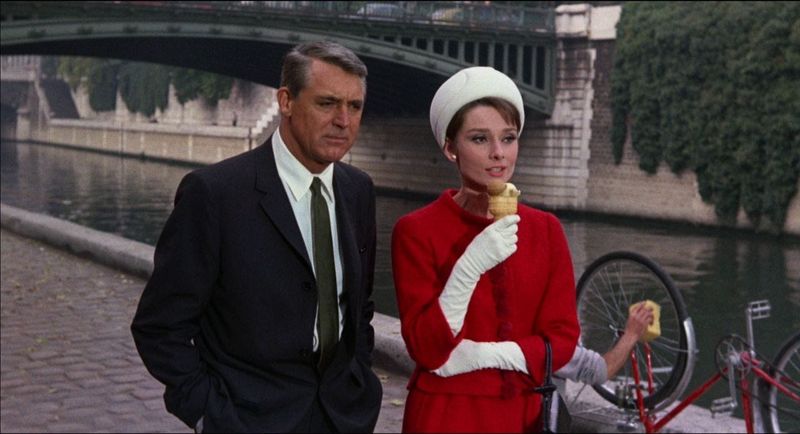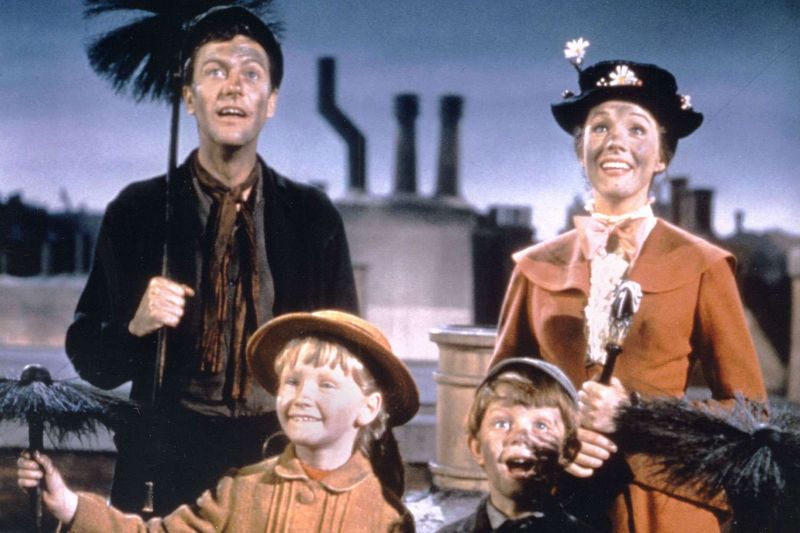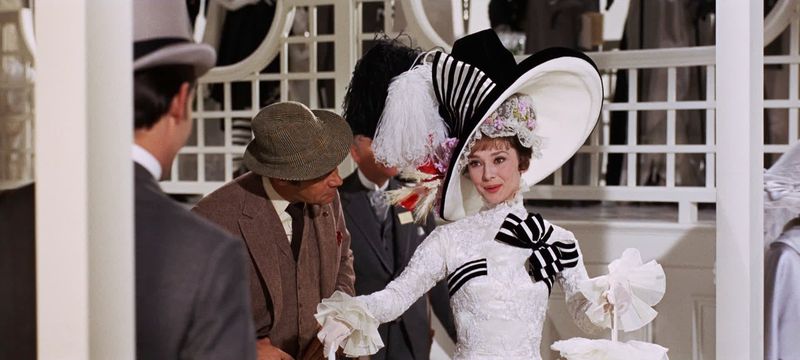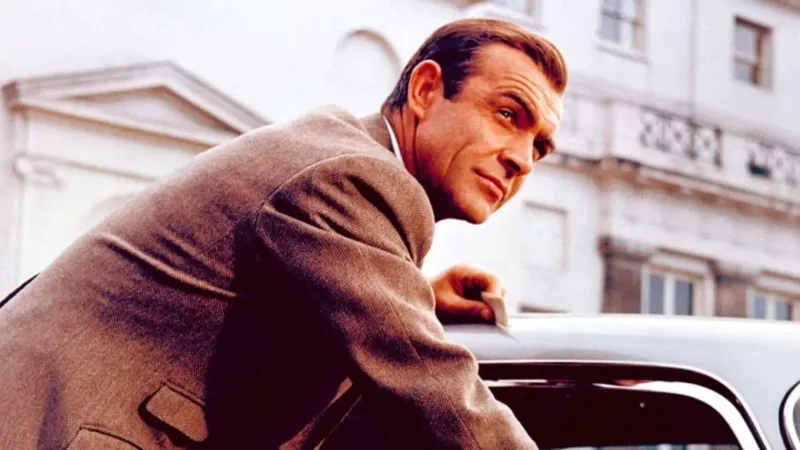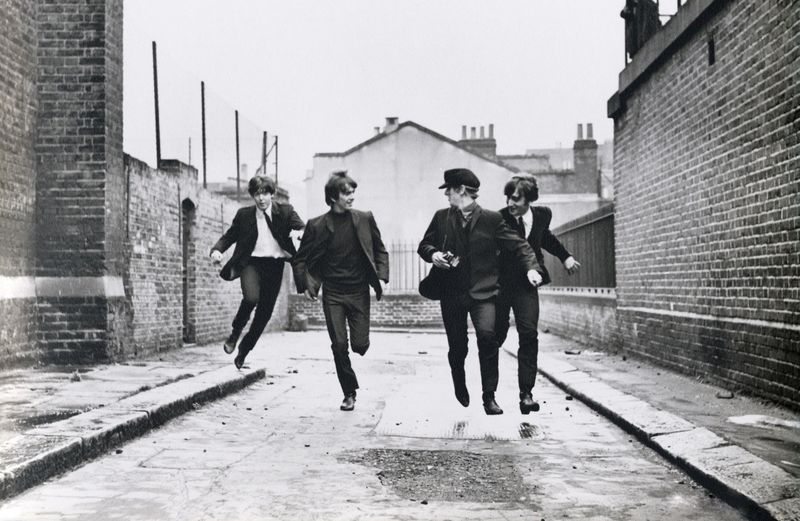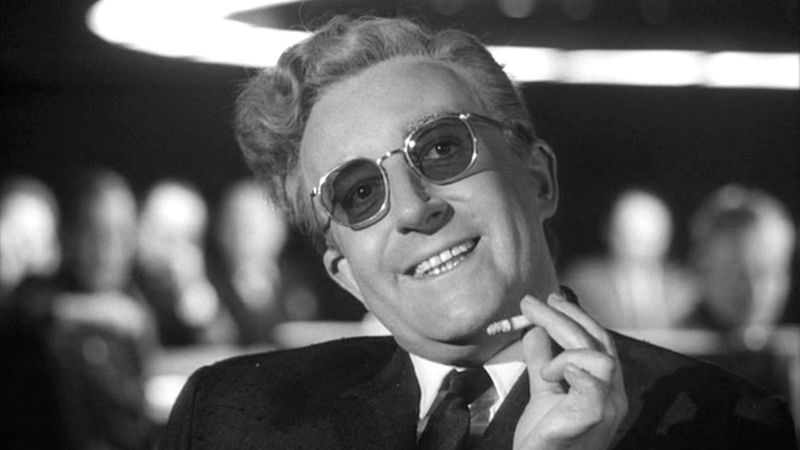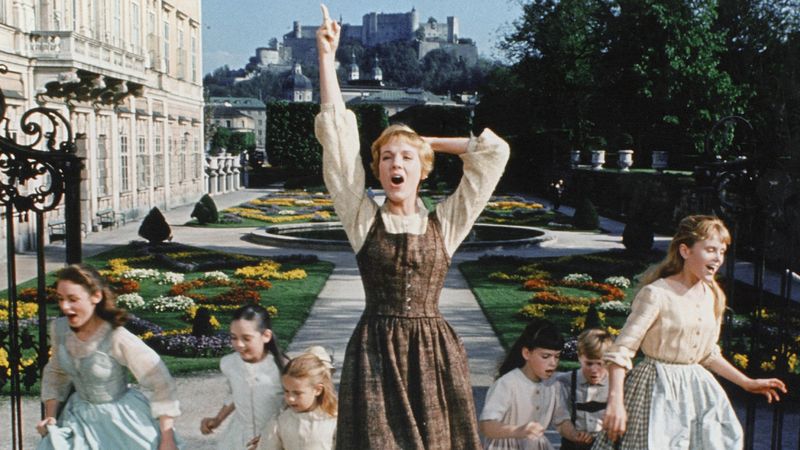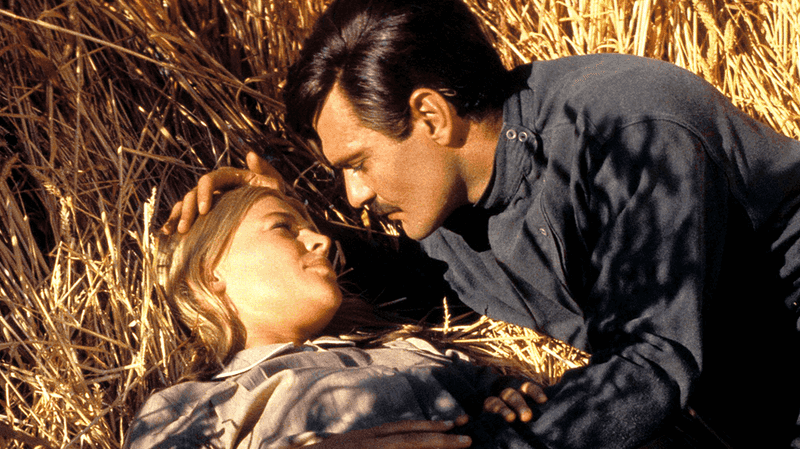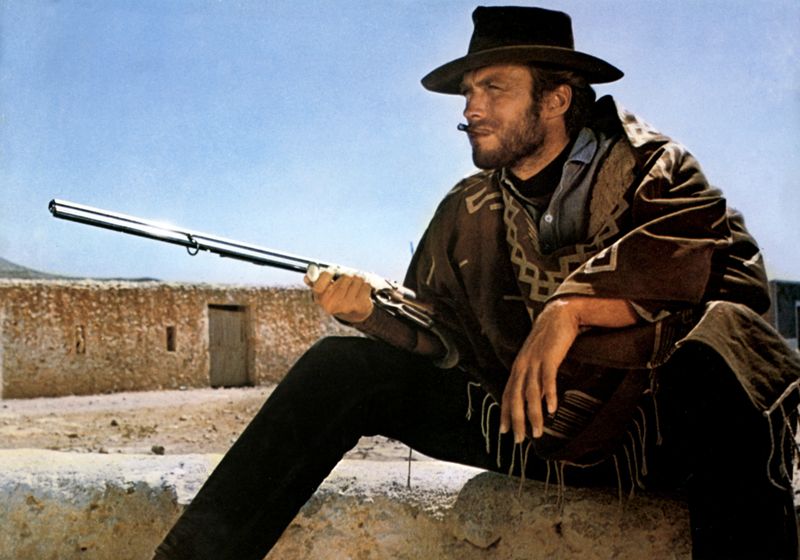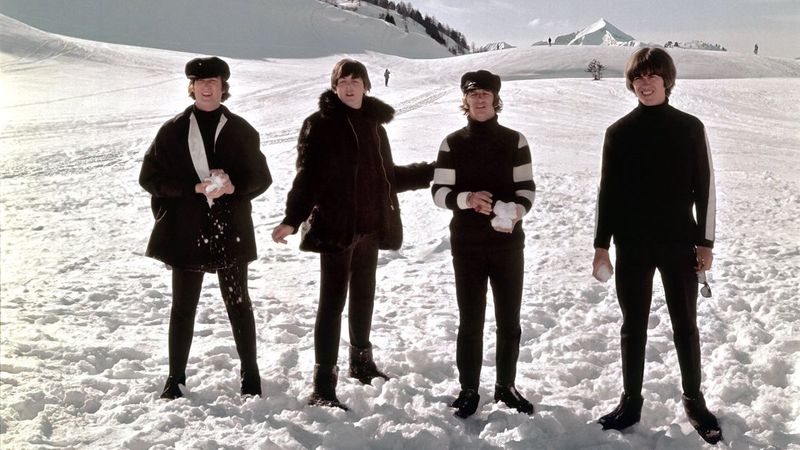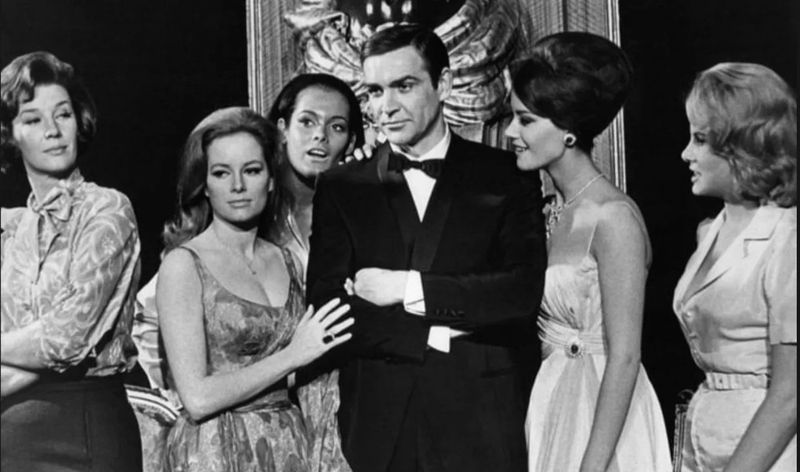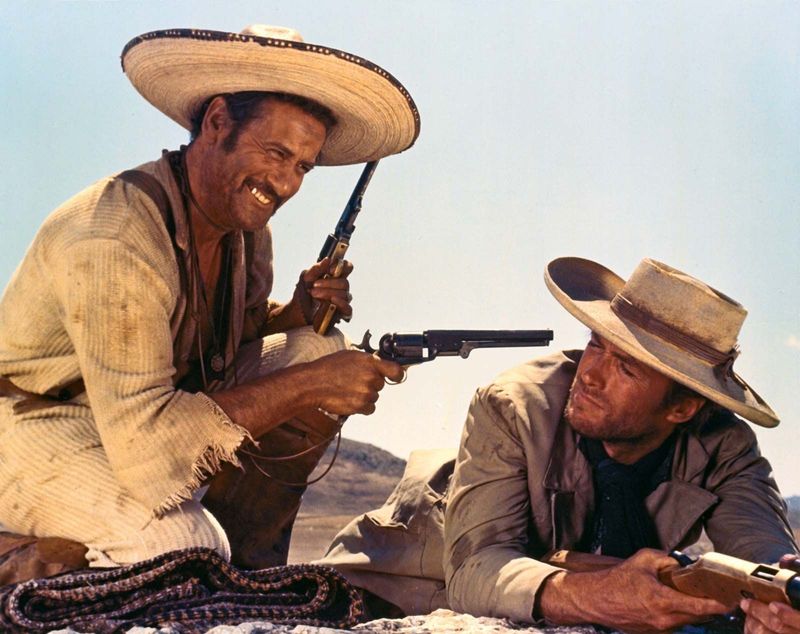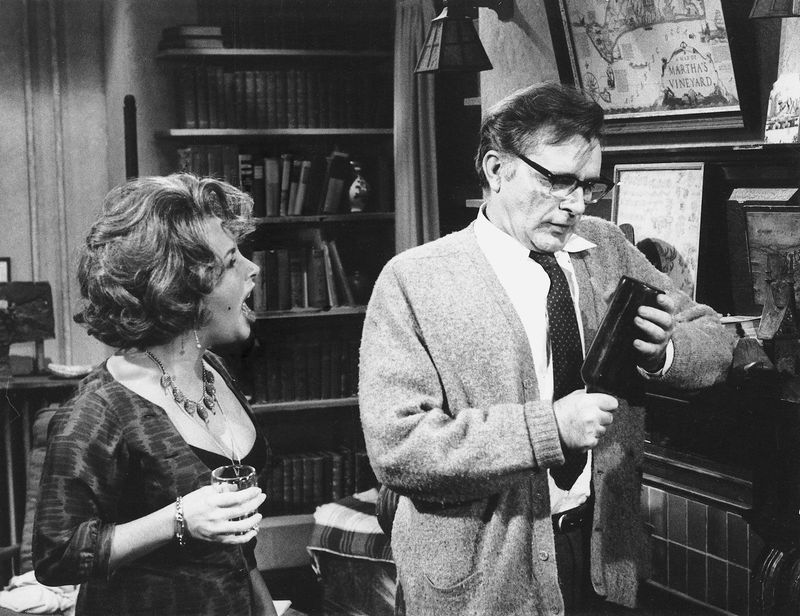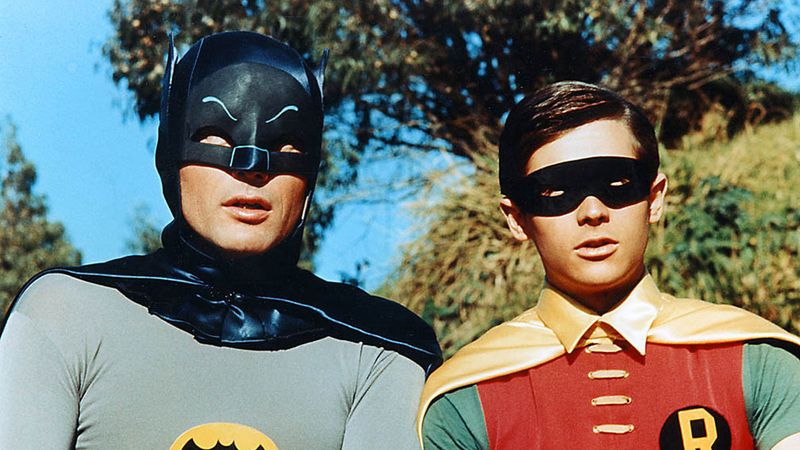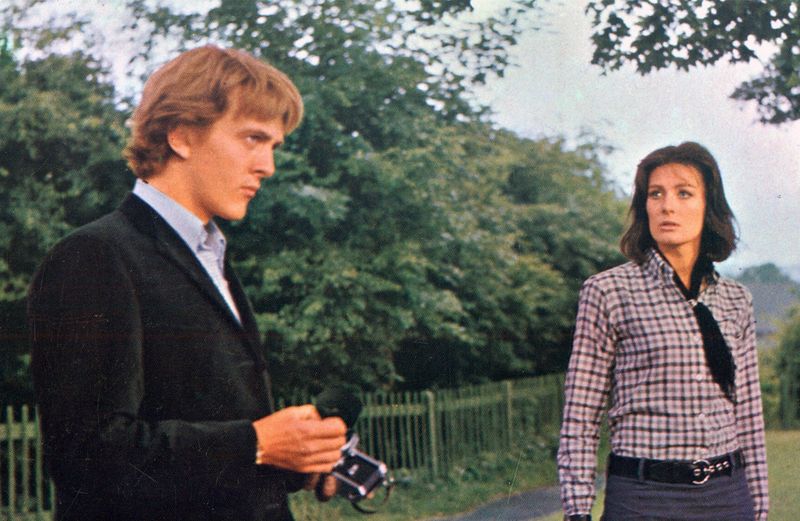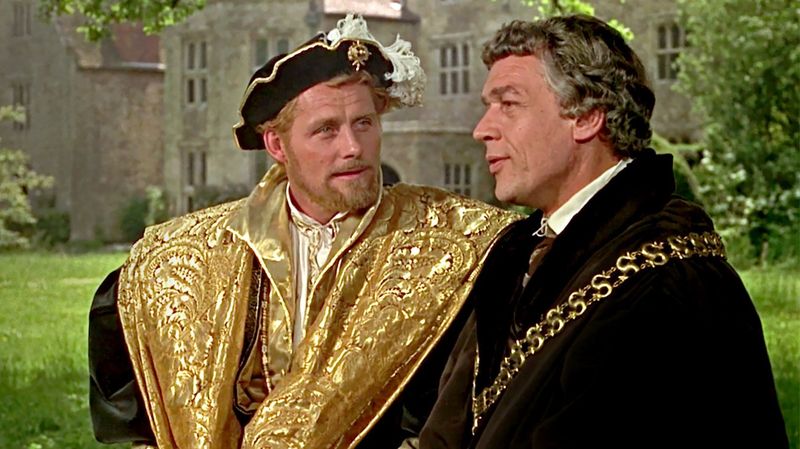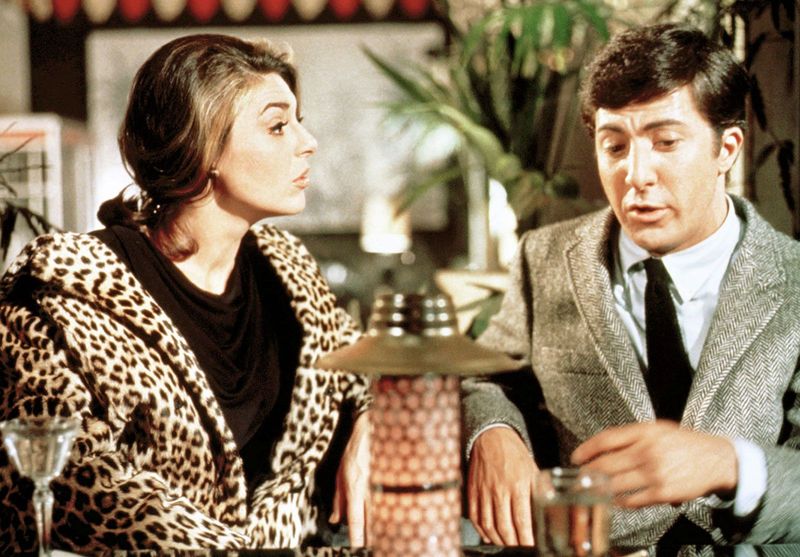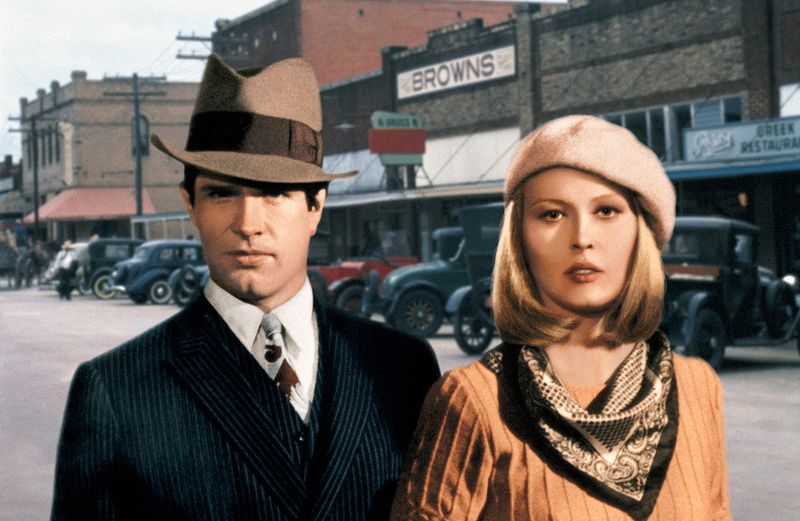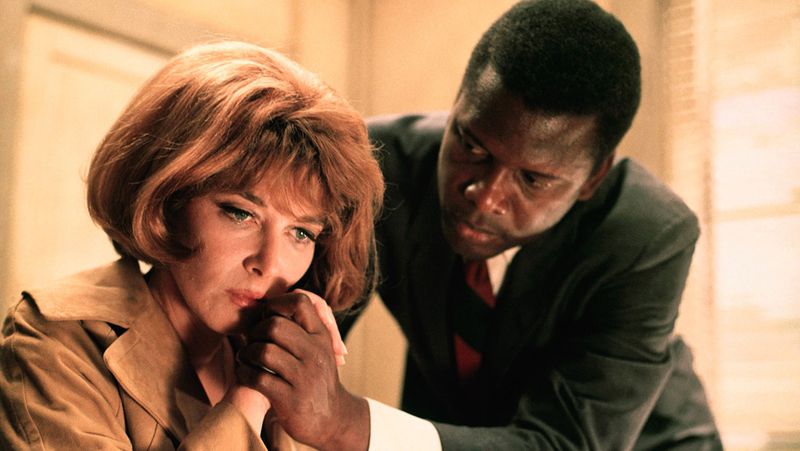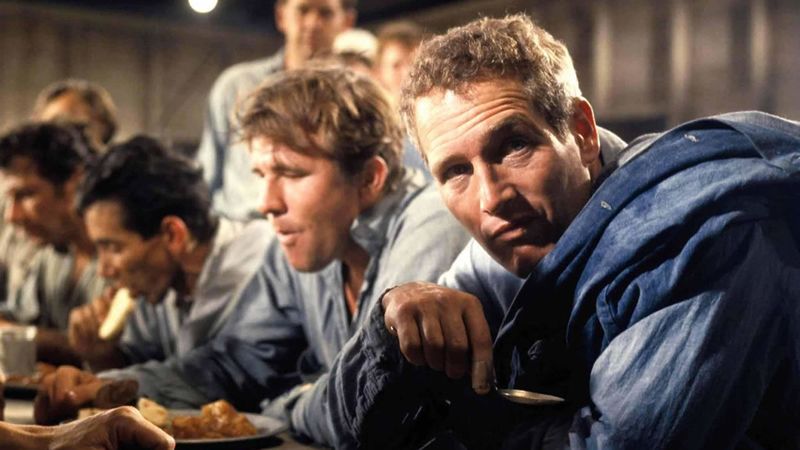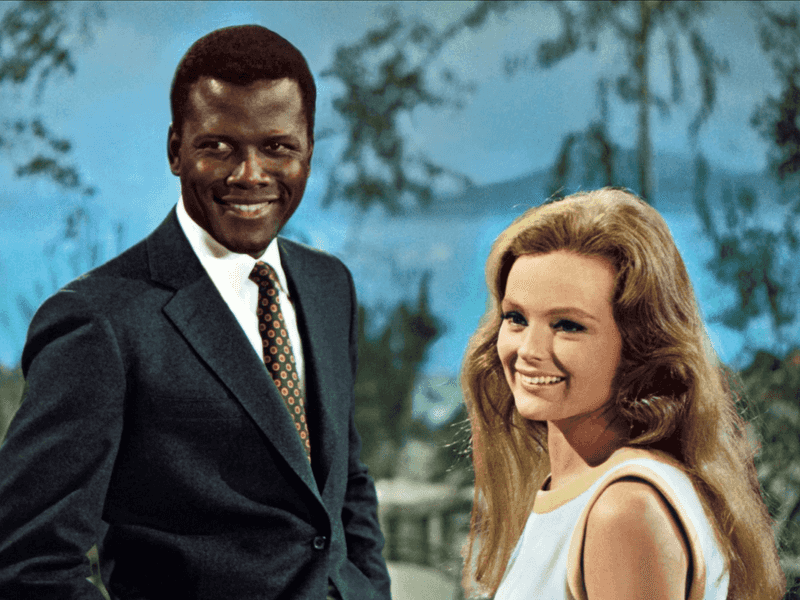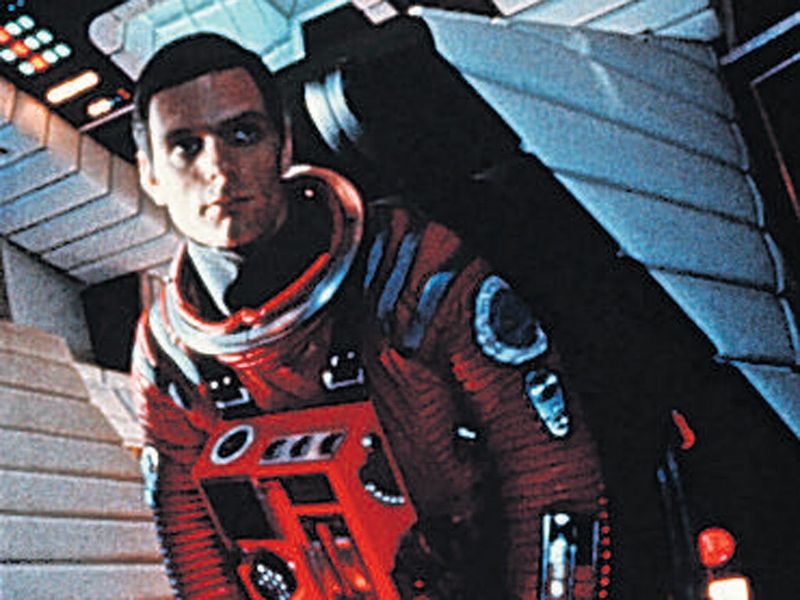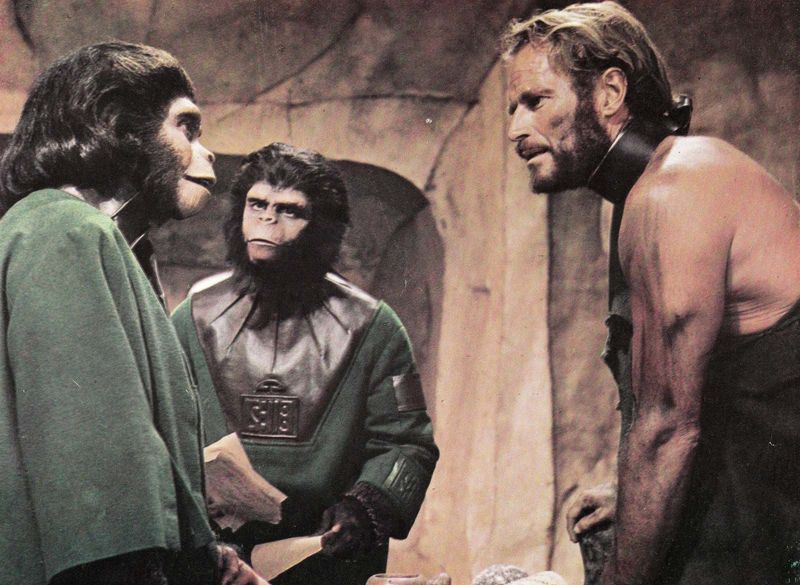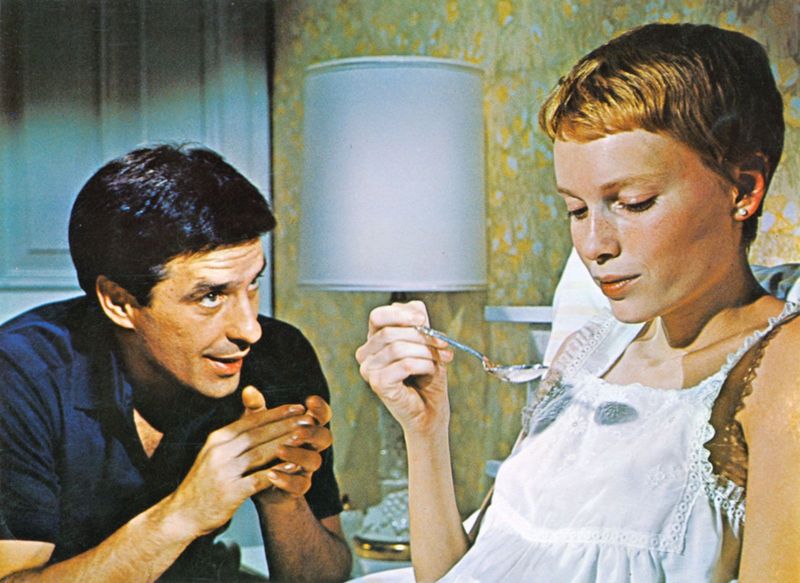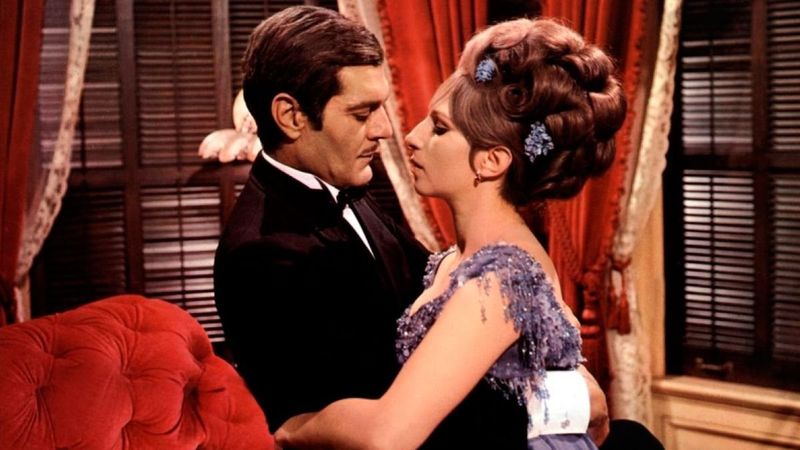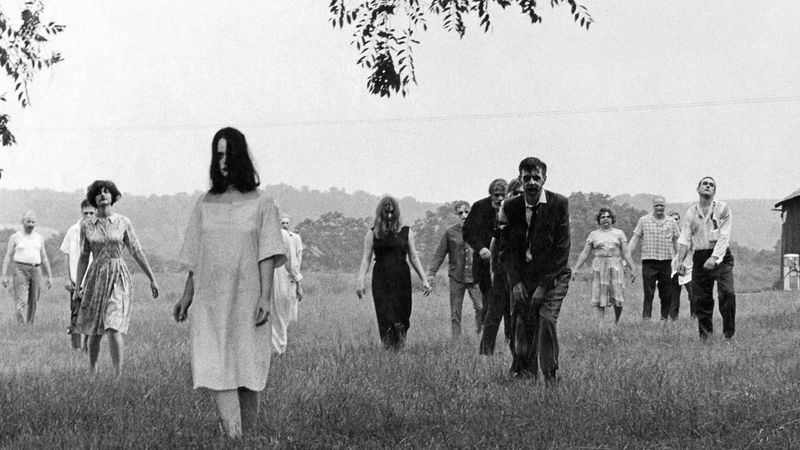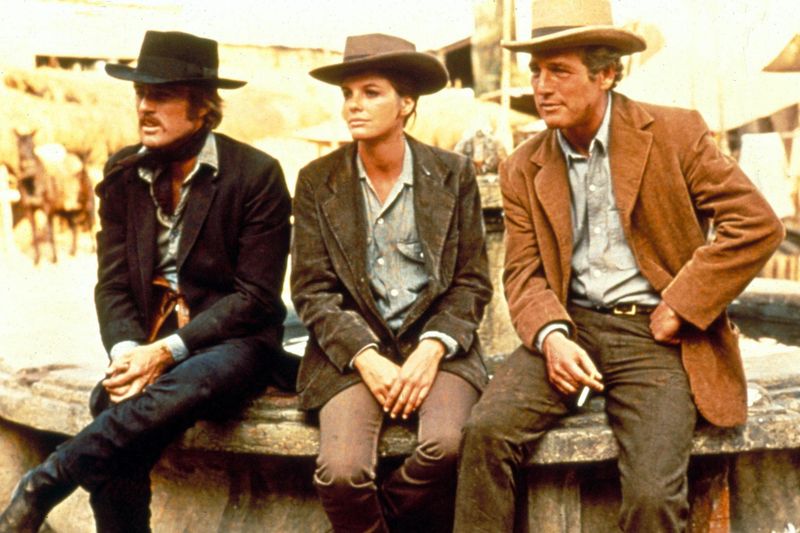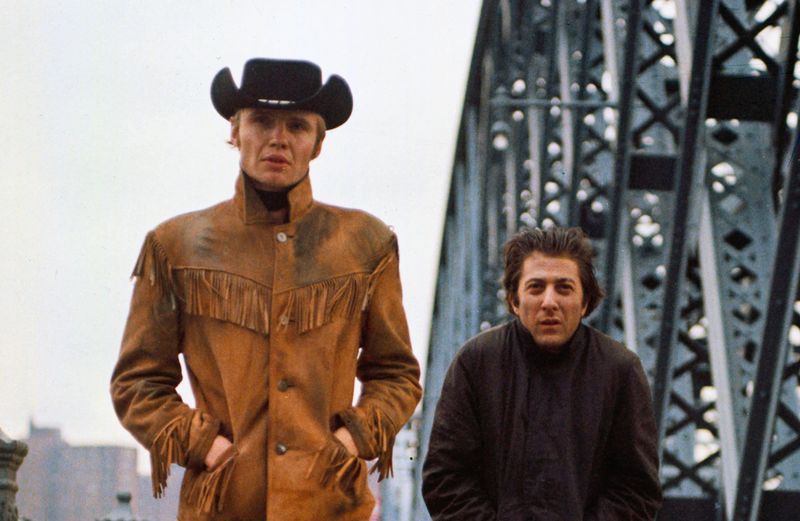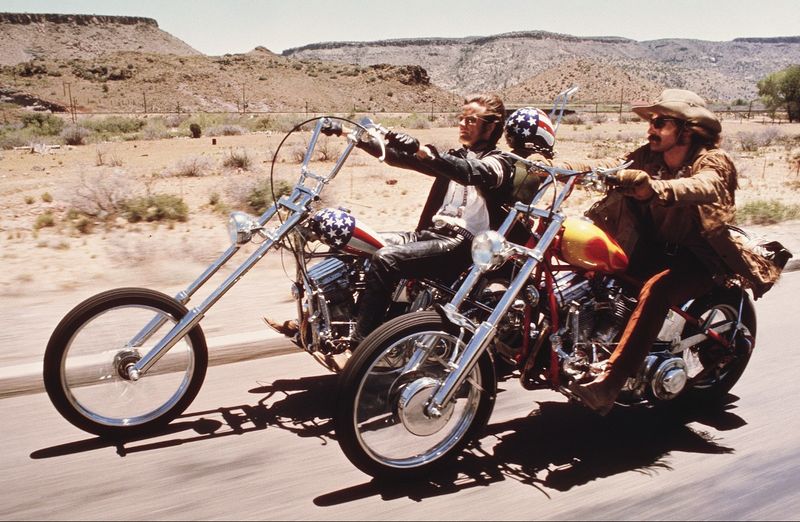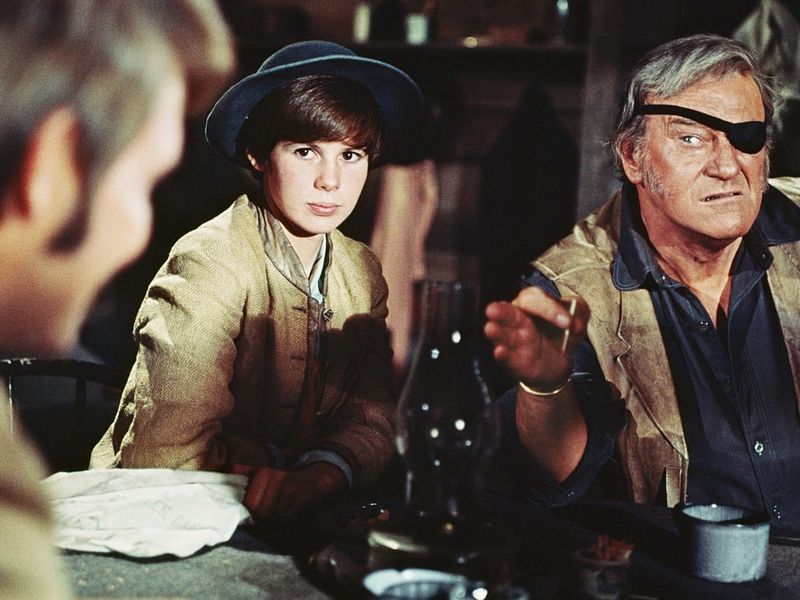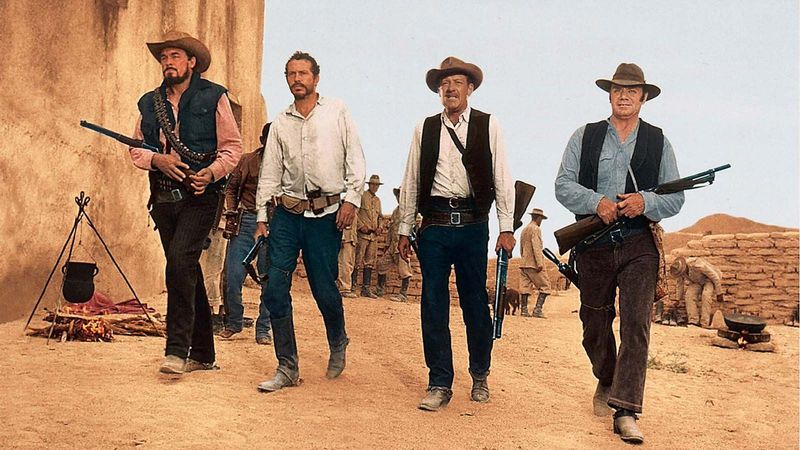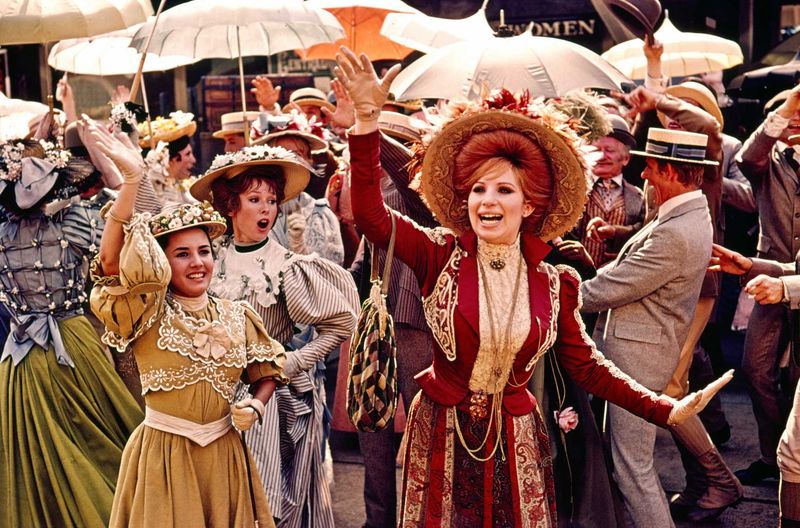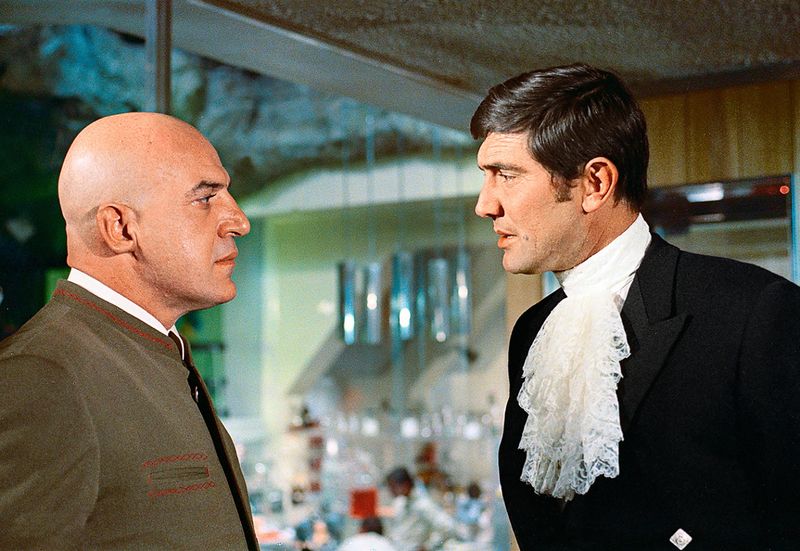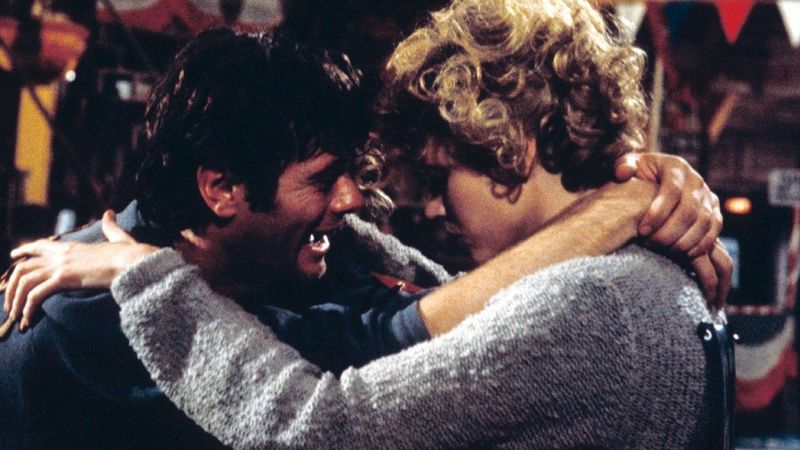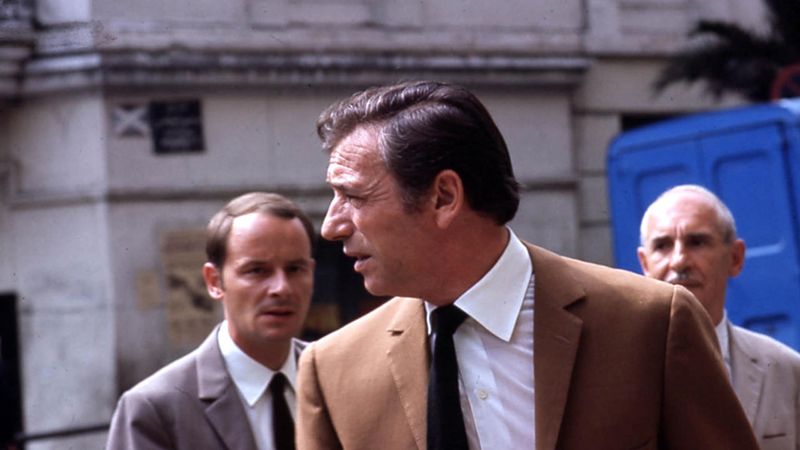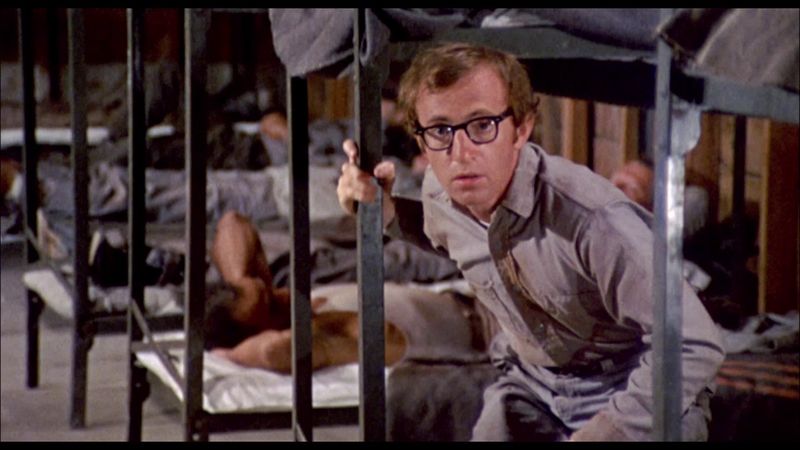The 1960s were a transformative era in film, producing works that have left a lasting impact on cinema and culture.
From thrilling adventures to poignant dramas, this decade showcased a diverse array of films that not only entertained but also provoked thought and inspired change.
In this blog post, we explore 50+ legendary movies from the 1960s that have shaped a generation, inviting you to reflect on how many you’ve seen and the influence they’ve had on the world of film.
1. Psycho (1960)
Alfred Hitchcock’s ‘Psycho’ shattered conventions and set new standards for horror films. The iconic shower scene, with Bernard Herrmann’s chilling score, remains one of cinema’s most famous sequences.
Anthony Perkins delivers a haunting performance as Norman Bates, a character that has intrigued audiences for decades.
The film’s exploration of identity and sanity was groundbreaking, challenging societal norms and perceptions. Hitchcock’s masterful direction keeps viewers on edge, blending suspense with psychological depth.
‘Psycho’ not only revolutionized the horror genre but also demonstrated the power of film to explore complex human emotions.
2. Spartacus (1960)
Directed by Stanley Kubrick, ‘Spartacus’ is an epic tale of rebellion and freedom. The film stars Kirk Douglas as the titular character, a gladiator who leads a revolt against the Roman Empire. With a stellar cast, including Laurence Olivier and Jean Simmons, the film’s performances are exceptional.
The grand scale of the film, combined with Kubrick’s meticulous attention to detail, creates an immersive historical experience. Themes of liberty and justice resonate throughout, making it a powerful commentary on human rights.
‘ Spartacus’ remains a classic, celebrated for its scope and its message of defiance against oppression.
3. The Magnificent Seven (1960)
‘The Magnificent Seven,’ directed by John Sturges, is a Western remake of Akira Kurosawa’s ‘Seven Samurai.’ The film tells the story of seven gunfighters hired to protect a Mexican village from bandits. Led by Yul Brynner, the ensemble cast includes Steve McQueen and Charles Bronson, delivering memorable performances.
The film’s score, composed by Elmer Bernstein, is iconic, capturing the spirit of the Wild West. Themes of honor, sacrifice, and camaraderie are woven throughout the narrative, resonating with audiences.
This action-packed Western has become a staple of the genre, influencing countless films that followed.
4. Ocean’s 11 (1960)
‘Ocean’s 11,’ starring Frank Sinatra and his Rat Pack, is a stylish caper film set in Las Vegas. The plot follows a group of World War II veterans planning a series of heists on New Year’s Eve. The film is renowned for its charismatic cast and witty dialogue.
The glitzy backdrop of Las Vegas, combined with the film’s smooth pacing, creates an engaging and entertaining experience. Themes of friendship and loyalty are central, with each character bringing unique skills to the heist.
‘Ocean’s 11’ has left a lasting legacy, inspiring numerous remakes and capturing the essence of 1960s cool.
5. The Apartment (1960)
Directed by Billy Wilder, ‘The Apartment’ is a poignant romantic comedy that explores themes of ambition and loneliness. Jack Lemmon stars as C.C. Baxter, an insurance clerk who lends his apartment to company executives for their extramarital affairs.
The film’s delicate balance of humor and drama is masterfully executed, with Shirley MacLaine delivering a standout performance as Fran Kubelik. Wilder’s sharp screenplay and direction provide a critical look at corporate culture and personal integrity.
‘ The Apartment’ won several Academy Awards and remains a beloved classic, praised for its wit and emotional depth.
6. West Side Story (1961)
‘West Side Story,’ directed by Robert Wise and Jerome Robbins, is a musical adaptation of Shakespeare’s ‘Romeo and Juliet.’ Set in New York City, the film explores the rivalry between two street gangs, the Jets and the Sharks.
Natalie Wood and Richard Beymer star as the star-crossed lovers, delivering captivating performances. The film’s choreography and musical score, including songs like ‘Tonight’ and ‘America,’ are legendary, earning it ten Academy Awards.
‘ West Side Story’ is celebrated for its vibrant portrayal of love and conflict, highlighting issues of race and community in 1960s America.
7. Breakfast at Tiffany’s (1961)
Blake Edwards’ ‘Breakfast at Tiffany’s’ is a romantic comedy starring Audrey Hepburn as the enchanting Holly Golightly. The film, based on Truman Capote’s novella, follows Holly’s adventures in New York City as she seeks a wealthy suitor.
Hepburn’s portrayal of Holly is iconic, epitomizing style and charm. The film’s fashion and music, including the song ‘Moon River,’ contribute to its timeless appeal.
Despite its lighthearted surface, the film delves into themes of loneliness and self-discovery, offering a nuanced look at identity and aspirations. ‘Breakfast at Tiffany’s’ remains a beloved classic with enduring cultural impact.
8. The Hustler (1961)
Robert Rossen’s ‘The Hustler’ stars Paul Newman as ‘Fast’ Eddie Felson, a talented pool player seeking to prove himself. The film explores themes of ambition and the cost of success, with Newman delivering a riveting performance.
Jackie Gleason and George C. Scott provide strong support, enhancing the film’s gritty atmosphere. The intense pool games are expertly filmed, capturing the tension and strategy of the sport.
Beyond its focus on billiards, ‘The Hustler’ is a character study of determination and downfall, offering insights into the human condition. Its impact on the sports drama genre is significant.
9. Judgment at Nuremberg (1961)
‘Judgment at Nuremberg,’ directed by Stanley Kramer, is a powerful courtroom drama about the post-World War II Nuremberg Trials. The film stars Spencer Tracy, Burt Lancaster, and Marlene Dietrich, delivering compelling performances.
The narrative examines themes of justice and morality, questioning the responsibility of individuals during wartime. The courtroom scenes are intense, highlighting the complexities of human rights and international law.
‘Judgment at Nuremberg’ is lauded for its thought-provoking exploration of guilt and accountability. It remains a significant film, contributing to discussions on ethics and the legacy of war.
10. One Hundred and One Dalmatians (1961)
Disney’s ‘One Hundred and One Dalmatians’ is a charming animated film about a family’s quest to rescue their puppies from the villainous Cruella de Vil. The film’s animation style is distinctive, utilizing a new Xerox process to create its lively visuals.
The story is engaging, with Pongo and Perdita leading the rescue mission, showcasing themes of family and courage. The film’s humor and warmth have endeared it to generations of audiences.
As a classic Disney film, ‘One Hundred and One Dalmatians’ continues to be beloved for its delightful characters and adventurous plot.
11. Lawrence of Arabia (1962)
David Lean’s ‘Lawrence of Arabia’ is a sweeping epic based on the life of T.E. Lawrence. The film stars Peter O’Toole in a career-defining role, capturing Lawrence’s complex personality and his role in the Arab Revolt.
The breathtaking cinematography, featuring expansive desert vistas, is a highlight, contributing to the film’s legendary status. Themes of identity and imperialism are explored, with a focus on Lawrence’s internal conflicts.
‘Lawrence of Arabia’ is celebrated for its grandeur and depth, influencing countless filmmakers and remaining a masterpiece of epic storytelling.
12. To Kill a Mockingbird (1962)
‘To Kill a Mockingbird,’ directed by Robert Mulligan, is based on Harper Lee’s Pulitzer Prize-winning novel. Gregory Peck stars as Atticus Finch, a lawyer defending a black man accused of raping a white woman in the racially charged setting of the 1930s South.
Peck’s performance is iconic, embodying integrity and moral courage. The film examines themes of racial injustice and empathy, resonating with audiences across generations.
As a critical and commercial success, ‘To Kill a Mockingbird’ is revered for its powerful narrative and social impact, continuing to inspire discussions on race and justice.
13. The Manchurian Candidate (1962)
John Frankenheimer’s ‘The Manchurian Candidate’ is a political thriller exploring themes of mind control and conspiracy. Frank Sinatra stars as Major Bennett Marco, unraveling a sinister plot involving brainwashed soldiers.
The film’s gripping narrative and innovative direction create a sense of paranoia and tension. Angela Lansbury delivers a standout performance, portraying a manipulative mother with chilling intensity.
‘ The Manchurian Candidate’ is celebrated for its bold exploration of political intrigue and psychological manipulation, remaining relevant and influential in the thriller genre.
14. Dr. No (1962)
‘Dr. No,’ directed by Terence Young, is the film that introduced the world to James Bond. Sean Connery stars as the iconic British spy, embarking on a mission to thwart the plans of the mysterious Dr. No.
The film’s exotic locations and thrilling action sequences set the standard for the Bond franchise. Connery’s charismatic performance established the character’s persona, blending charm with danger.
‘ Dr. No’ launched the long-lasting Bond series, becoming a cultural phenomenon and influencing the spy genre with its blend of action, style, and intrigue.
15. What Ever Happened to Baby Jane? (1962)
Robert Aldrich’s ‘What Ever Happened to Baby Jane?’ is a psychological thriller starring Bette Davis and Joan Crawford. The film centers on the intense rivalry between two aging sisters, exploring themes of jealousy and madness.
Davis’s portrayal of Baby Jane is haunting, with her performance adding layers of complexity to the character’s descent into obsession. The film’s tension and suspense are masterfully crafted, keeping audiences on edge.
‘ What Ever Happened to Baby Jane?’ remains a classic of the thriller genre, known for its chilling atmosphere and powerhouse performances.
16. Cleopatra (1963)
Joseph L. Mankiewicz’s ‘Cleopatra’ is an epic historical drama starring Elizabeth Taylor as the legendary Egyptian queen. The film chronicles Cleopatra’s relationships with Julius Caesar and Mark Antony, emphasizing themes of power and ambition.
The film’s lavish production and elaborate costumes are visually stunning, contributing to its massive budget. Despite production challenges, ‘Cleopatra’ became a cinematic spectacle, earning several Academy Awards.
Taylor’s portrayal of Cleopatra is iconic, capturing the queen’s charisma and complexity. ‘Cleopatra’ is celebrated for its grandeur and remains a significant achievement in film history.
17. The Birds (1963)
Alfred Hitchcock’s ‘The Birds’ is a suspenseful thriller exploring nature’s wrath on a small town. Tippi Hedren stars as Melanie Daniels, caught in a terrifying avian onslaught. The film’s innovative special effects create a sense of impending doom.
Hitchcock’s direction builds tension, with sudden bird attacks disrupting ordinary life. Themes of chaos and survival are prevalent, reflecting humanity’s vulnerability.
‘ The Birds’ is renowned for its unsettling atmosphere and has left a lasting legacy in the horror genre, influencing countless filmmakers with its masterful blend of suspense and fear.
18. The Great Escape (1963)
John Sturges’ ‘The Great Escape’ is a WWII adventure film based on true events. Steve McQueen leads an ensemble cast as Captain Hilts, part of a group planning a massive escape from a German POW camp.
The film’s thrilling narrative and memorable characters capture the spirit of resilience and ingenuity. With a rousing musical score and expertly crafted escape sequences, the film keeps audiences on the edge of their seats.
‘ The Great Escape’ is celebrated for its portrayal of camaraderie and heroism, becoming a classic war film that continues to entertain and inspire.
19. 8½ (1963)
Federico Fellini’s ‘8½’ is a critically acclaimed film exploring the artistic and personal struggles of a director. Marcello Mastroianni stars as Guido Anselmi, a filmmaker grappling with creative block.
The film’s innovative narrative structure blends reality with dreamlike sequences, reflecting Guido’s internal turmoil. Themes of identity and self-discovery are central, with Fellini’s direction creating a visually stunning experience.
‘8½’ is celebrated for its introspective narrative and has profoundly impacted filmmakers worldwide, inspiring numerous cinematic works with its exploration of the creative process.
20. Charade (1963)
‘Charade,’ directed by Stanley Donen, is a thrilling blend of romance and intrigue. Audrey Hepburn and Cary Grant star in this suspenseful tale set in Paris, where secrets and deception abound.
The film’s witty dialogue and stylish direction create an engaging and entertaining experience. Themes of trust and betrayal are intricately woven into the narrative, keeping audiences guessing.
‘ Charade’ is celebrated for its sophisticated blend of humor and suspense, becoming a classic of the genre and showcasing the chemistry between its charismatic leads.
21. Mary Poppins (1964)
‘Mary Poppins,’ directed by Robert Stevenson, is a beloved musical fantasy film starring Julie Andrews as the enchanting nanny. The story follows the magical adventures of the Banks children in Edwardian London.
Andrews’ performance is iconic, bringing charm and warmth to the character. The film’s memorable songs, like ‘Supercalifragilisticexpialidocious,’ and innovative visual effects contribute to its enduring appeal.
‘ Mary Poppins’ is celebrated for its imaginative storytelling and joyful spirit, becoming a timeless classic that continues to delight audiences of all ages with its blend of magic and heart.
22. My Fair Lady (1964)
George Cukor’s ‘My Fair Lady’ is a musical adaptation of George Bernard Shaw’s play ‘Pygmalion.’ The film stars Audrey Hepburn as Eliza Doolittle, a Cockney flower girl transformed by Professor Henry Higgins, played by Rex Harrison.
The film’s lavish production and unforgettable songs, such as ‘Wouldn’t It Be Loverly,’ are highlights, earning it several Academy Awards. Themes of identity and transformation are central, offering a humorous yet insightful commentary on social class.
‘ My Fair Lady’ remains a beloved classic, celebrated for its charm and the captivating performances of its leads.
23. Goldfinger (1964)
‘Goldfinger,’ directed by Guy Hamilton, is the third James Bond film, featuring Sean Connery as the iconic spy. The plot follows Bond’s mission to stop the villainous Auric Goldfinger from contaminating the U.S. gold reserve.
The film’s memorable villain, gadgets, and car chases set new standards for the Bond series. Connery’s charismatic performance and the film’s blend of action and style contribute to its success.
‘ Goldfinger’ is celebrated for its thrilling narrative and iconic moments, solidifying Bond’s status as a cinematic legend and influencing the spy genre.
24. A Hard Day’s Night (1964)
‘A Hard Day’s Night,’ directed by Richard Lester, is a musical comedy featuring The Beatles. The film captures a day in the life of the band, blending humor and music in a documentary-style narrative.
The film’s innovative direction and energetic performances showcase The Beatles’ charisma and wit. Songs like ‘Can’t Buy Me Love’ add to its charm, offering fans a glimpse into the band’s dynamic world.
‘ A Hard Day’s Night’ is celebrated for its playful spirit and has influenced music films with its groundbreaking style, capturing the essence of 1960s pop culture.
25. Dr. Strangelove (1964)
Stanley Kubrick’s ‘Dr. Strangelove’ is a satirical comedy exploring the absurdities of nuclear war. Peter Sellers stars in multiple roles, delivering a remarkable performance that balances humor with sharp social commentary.
The film’s narrative cleverly critiques Cold War politics and the fragility of human decision-making. Kubrick’s direction creates a blend of tension and absurdity, resulting in a unique cinematic experience.
‘ Dr. Strangelove’ is celebrated for its biting satire and remains a timeless classic, influencing political comedies with its incisive humor and bold storytelling.
26. The Sound of Music (1965)
‘The Sound of Music,’ directed by Robert Wise, is a beloved musical drama starring Julie Andrews. The film tells the story of Maria, a nun-turned-governess who brings joy to the Von Trapp family.
The film’s beautiful landscapes and memorable songs, like ‘Do-Re-Mi,’ create a heartwarming experience. Themes of love, family, and resilience are central, resonating with audiences worldwide.
‘ The Sound of Music’ is celebrated for its uplifting spirit and has become a timeless classic, enchanting viewers with its blend of music, emotion, and picturesque settings.
27. Doctor Zhivago (1965)
David Lean’s ‘Doctor Zhivago’ is an epic romance set against the backdrop of the Russian Revolution. Omar Sharif stars as Yuri Zhivago, a poet and physician torn between love and duty.
The film’s lush cinematography and Maurice Jarre’s haunting score create a poignant atmosphere. Themes of passion, loss, and the impact of war are explored, offering a deeply emotional narrative.
‘ Doctor Zhivago’ is celebrated for its grand storytelling and has become a classic of romantic cinema, capturing the human spirit amid turmoil and change.
28. For a Few Dollars More (1965)
Sergio Leone’s ‘For a Few Dollars More’ is a classic Spaghetti Western starring Clint Eastwood and Lee Van Cleef. The film follows bounty hunters in pursuit of a notorious outlaw, exploring themes of justice and vengeance.
Leone’s direction and Ennio Morricone’s iconic score create a captivating atmosphere, enhancing the film’s tension and style. The dynamic between Eastwood and Van Cleef adds depth to the narrative.
‘ For a Few Dollars More’ is celebrated for its memorable characters and has significantly influenced the Western genre, standing as a testament to Leone’s filmmaking prowess.
29. Help! (1965)
‘Help!,’ directed by Richard Lester, is a musical comedy featuring The Beatles. The film’s playful narrative involves a plot to steal Ringo Starr’s ring, leading to a series of comedic escapades.
The film’s humor and lively musical numbers capture The Beatles’ charm, with songs like ‘You’ve Got to Hide Your Love Away’ adding to its appeal. The vibrant visuals and inventive direction create a unique cinematic experience.
‘ Help!’ is celebrated for its fun-loving spirit and has become a favorite among fans, showcasing the band’s charisma and creativity.
30. Thunderball (1965)
‘Thunderball,’ directed by Terence Young, is the fourth James Bond film, featuring Sean Connery as the iconic spy. The plot involves a mission to recover stolen nuclear warheads, with thrilling underwater sequences.
The film’s exotic locales and action-packed narrative capture the excitement and danger of Bond’s world. Connery’s performance and the film’s innovative stunts contribute to its success.
‘ Thunderball’ is celebrated for its adventurous spirit and has become a classic in the Bond series, influencing the spy genre with its blend of suspense and spectacle.
31. The Good, the Bad and the Ugly (1966)
Sergio Leone’s ‘The Good, the Bad and the Ugly’ is a quintessential Spaghetti Western starring Clint Eastwood. The film follows three gunslingers on a quest for buried treasure, exploring themes of greed and morality.
Leone’s masterful direction and Ennio Morricone’s iconic score create an unforgettable cinematic experience. The film’s epic scope and memorable characters have made it a classic of the genre.
‘ The Good, the Bad and the Ugly’ is celebrated for its stylistic innovations and has significantly influenced the Western genre, standing as a testament to Leone’s artistic vision.
32. Who’s Afraid of Virginia Woolf? (1966)
Directed by Mike Nichols, ‘Who’s Afraid of Virginia Woolf?’ is a powerful drama based on Edward Albee’s play. Elizabeth Taylor and Richard Burton star as a married couple in a volatile relationship.
The film’s intense dialogue and raw performances create a gripping exploration of marital discord and psychological conflict. Themes of illusion and reality are central, offering a profound look at human relationships.
‘ Who’s Afraid of Virginia Woolf?’ is celebrated for its compelling narrative and has become a classic of American cinema, showcasing Taylor’s dramatic range and Nichols’ directorial prowess.
33. Batman: The Movie (1966)
‘Batman: The Movie,’ directed by Leslie H. Martinson, is a campy adaptation of the popular TV series. Starring Adam West as Batman and Burt Ward as Robin, the film captures the playful spirit of the 1960s superhero genre.
The film’s colorful villains and comedic tone create an entertaining experience, with the dynamic duo battling iconic foes like the Joker and Penguin. Themes of heroism and justice are explored with a humorous twist.
‘ Batman: The Movie’ is celebrated for its nostalgic charm and has become a cult favorite, reflecting the era’s pop culture and comic book style.
34. Blow-Up (1966)
Michelangelo Antonioni’s ‘Blow-Up’ is a mystery thriller set in the vibrant world of 1960s London. The film follows a fashion photographer, played by David Hemmings, who discovers a potential murder captured in his photographs.
The film’s innovative narrative and visual style create a compelling exploration of perception and reality. Themes of isolation and existential doubt are woven into the story, offering a critique of modern society.
‘ Blow-Up’ is celebrated for its artistic depth and has influenced filmmakers with its unique approach to storytelling, standing as a landmark in the art film genre.
35. A Man for All Seasons (1966)
Fred Zinnemann’s ‘A Man for All Seasons’ is a historical drama based on Robert Bolt’s play. The film stars Paul Scofield as Sir Thomas More, who stands up to King Henry VIII’s demands regarding the church.
The film’s eloquent dialogue and powerful performances create a thought-provoking exploration of integrity and faith. Themes of conscience and authority are central, offering a timeless reflection on moral courage.
‘ A Man for All Seasons’ is celebrated for its profound narrative and has become a classic of historical cinema, earning several Academy Awards for its exceptional craftsmanship.
36. The Graduate (1967)
Mike Nichols’ ‘The Graduate’ is a defining film of the 1960s, starring Dustin Hoffman as Benjamin Braddock. The film explores themes of alienation and identity, with Benjamin caught in an affair with Mrs. Robinson, played by Anne Bancroft.
The film’s innovative direction and soundtrack, featuring Simon & Garfunkel, create a cultural touchstone that resonates with audiences. Themes of rebellion and self-discovery are central, offering a portrait of a generation in transition.
‘ The Graduate’ is celebrated for its sharp wit and has become a classic, influencing filmmakers with its distinctive style and narrative depth.
37. Bonnie and Clyde (1967)
Arthur Penn’s ‘Bonnie and Clyde’ is a groundbreaking film about the infamous bank-robbing duo. Warren Beatty and Faye Dunaway star as the titular characters, capturing the spirit of rebellion and romance.
The film’s dynamic narrative and stylish direction create a compelling exploration of fame and violence. Themes of love and defiance are central, reflecting the social upheaval of the 1960s.
‘ Bonnie and Clyde’ is celebrated for its bold storytelling and has become a classic, influencing Hollywood with its innovative approach to crime drama and anti-establishment themes.
38. In the Heat of the Night (1967)
‘In the Heat of the Night,’ directed by Norman Jewison, stars Sidney Poitier as Detective Virgil Tibbs. The film explores themes of racism and justice in the South, with Tibbs solving a murder case under challenging circumstances.
Poitier’s performance is powerful, embodying dignity and determination. The film’s narrative and atmospheric tension address social issues with unflinching honesty.
‘ In the Heat of the Night’ is celebrated for its impactful storytelling and has become a classic, earning several Academy Awards and contributing to discussions on racial equality.
39. Cool Hand Luke (1967)
Stuart Rosenberg’s ‘Cool Hand Luke’ stars Paul Newman as Luke, a rebellious prisoner challenging authority in a Southern work camp. The film explores themes of individuality and resistance, with Newman delivering a charismatic performance.
The film’s narrative and compelling characters create a powerful exploration of freedom and defiance. Themes of camaraderie and resilience are woven into the story, capturing the spirit of rebellion.
‘ Cool Hand Luke’ is celebrated for its iconic scenes and has become a classic, influencing filmmakers with its portrayal of anti-establishment themes.
40. Guess Who’s Coming to Dinner (1967)
‘Guess Who’s Coming to Dinner,’ directed by Stanley Kramer, stars Spencer Tracy, Katharine Hepburn, and Sidney Poitier. The film explores themes of love and acceptance as an interracial couple meets with societal challenges.
The film’s thoughtful dialogue and powerful performances create a poignant examination of prejudice and family dynamics. Themes of understanding and change are central, reflecting the social transformations of the 1960s.
‘ Guess Who’s Coming to Dinner’ is celebrated for its progressive narrative and has become a classic, contributing to conversations on race and social harmony.
41. 2001: A Space Odyssey (1968)
Stanley Kubrick’s ‘2001: A Space Odyssey’ is a visionary science fiction film that explores the mysteries of space and human evolution. The film’s groundbreaking visual effects and innovative narrative structure create a stunning cinematic experience.
Themes of technology and existentialism are central, with the enigmatic HAL 9000 computer adding depth to the narrative. The film’s philosophical undertones invite viewers to ponder humanity’s place in the universe.
‘2001: A Space Odyssey’ is celebrated for its audacious scope and has become a landmark in the sci-fi genre, influencing countless filmmakers.
42. Planet of the Apes (1968)
Franklin J. Schaffner’s ‘Planet of the Apes’ is a sci-fi classic starring Charlton Heston as an astronaut who crash-lands on a planet ruled by intelligent apes. The film explores themes of power and societal critique, with Heston delivering a compelling performance.
The film’s innovative makeup and design create a believable and unsettling world. Themes of civilization and identity are central, offering a reflection on human nature.
‘ Planet of the Apes’ is celebrated for its provocative narrative and has become a classic, influencing the sci-fi genre with its thought-provoking exploration of society.
43. Rosemary’s Baby (1968)
Roman Polanski’s ‘Rosemary’s Baby’ is a chilling horror film about a young couple expecting their first child under ominous circumstances. Mia Farrow stars as Rosemary, whose pregnancy takes a dark turn amid suspicious neighbors.
The film’s suspenseful narrative and eerie atmosphere create a sense of dread and paranoia. Themes of trust and manipulation are central, with Polanski’s direction heightening the tension.
‘ Rosemary’s Baby’ is celebrated for its psychological depth and has become a classic, influencing horror cinema with its unsettling exploration of fear and control.
44. Funny Girl (1968)
William Wyler’s ‘Funny Girl’ is a musical biopic starring Barbra Streisand as Fanny Brice, a Ziegfeld star rising to fame. The film explores themes of ambition and love, with Streisand’s dynamic performance earning her an Academy Award.
The film’s memorable musical numbers and engaging narrative create a captivating portrayal of showbiz life. Themes of identity and resilience are woven into the story, offering insights into the highs and lows of fame.
‘ Funny Girl’ is celebrated for its charismatic lead and has become a classic, showcasing Streisand’s talent and the allure of Broadway.
45. Night of the Living Dead (1968)
George A. Romero’s ‘Night of the Living Dead’ is a groundbreaking horror film that redefined the zombie genre. The film follows a group of survivors trapped in a farmhouse during a zombie apocalypse.
Romero’s innovative direction and social commentary create a tense and thought-provoking narrative. Themes of survival and societal breakdown are central, offering a critique of contemporary issues.
‘ Night of the Living Dead’ is celebrated for its impact on horror cinema and has become a cult classic, influencing the zombie genre with its visceral and unsettling approach.
46. Butch Cassidy and the Sundance Kid (1969)
George Roy Hill’s ‘Butch Cassidy and the Sundance Kid’ stars Paul Newman and Robert Redford as the infamous outlaws. The film’s blend of humor and adventure creates an entertaining narrative, capturing the spirit of the Wild West.
Themes of friendship and loyalty are central, with Newman and Redford’s chemistry adding depth to their characters. The film’s memorable score and iconic scenes have made it a classic of the Western genre.
‘ Butch Cassidy and the Sundance Kid’ is celebrated for its charismatic leads and has become a favorite, influencing the portrayal of outlaws in cinema.
47. Midnight Cowboy (1969)
John Schlesinger’s ‘Midnight Cowboy’ is a poignant drama starring Dustin Hoffman and Jon Voight. The film follows Joe Buck and Ratso Rizzo, two unlikely friends navigating life in New York City.
The film’s raw narrative and compelling performances create a powerful exploration of loneliness and survival. Themes of friendship and dreams are central, offering a critique of the American dream.
‘ Midnight Cowboy’ is celebrated for its emotional depth and has become a classic, earning several Academy Awards and influencing narratives of urban life.
48. Easy Rider (1969)
Dennis Hopper’s ‘Easy Rider’ is a landmark film exploring the counterculture movement of the 1960s. The film stars Peter Fonda and Dennis Hopper as bikers on a journey across America, encountering societal resistance.
The film’s narrative and soundtrack capture the spirit of freedom and rebellion. Themes of identity and societal norms are central, offering a reflection on America’s cultural landscape.
‘ Easy Rider’ is celebrated for its groundbreaking style and has become a classic, influencing the portrayal of counterculture and road movies in cinema.
49. True Grit (1969)
Henry Hathaway’s ‘True Grit’ stars John Wayne as Rooster Cogburn, a grizzled marshal helping a young girl track down her father’s killer. The film’s narrative blends humor and drama, capturing the spirit of the Western genre.
Wayne’s performance is iconic, earning him an Academy Award. Themes of justice and redemption are central, offering a tale of courage and determination.
‘ True Grit’ is celebrated for its engaging storytelling and has become a classic, influencing the portrayal of Western heroes and earning a place in cinematic history.
50. The Wild Bunch (1969)
Sam Peckinpah’s ‘The Wild Bunch’ is a revisionist Western that examines themes of honor and betrayal. The film follows a group of aging outlaws as they navigate a changing world, facing moral and physical challenges.
The film’s dynamic action sequences and complex characters create a compelling narrative, offering a critique of violence and society. Themes of loyalty and survival are woven into the story, reflecting the turbulent 1960s.
‘ The Wild Bunch’ is celebrated for its innovative style and has become a classic, influencing the Western genre with its raw and unflinching portrayal.
51. Hello, Dolly! (1969)
Gene Kelly’s ‘Hello, Dolly!’ is a musical comedy starring Barbra Streisand as the lively matchmaker Dolly Levi. The film’s vibrant narrative and engaging musical numbers create a delightful exploration of love and ambition.
Streisand’s performance is charismatic, bringing energy to the character. Themes of romance and aspiration are central, offering a humorous yet heartfelt portrayal of finding one’s path.
‘ Hello, Dolly!’ is celebrated for its charming spirit and has become a classic, showcasing Streisand’s talent and the allure of musical theater.
52. On Her Majesty’s Secret Service (1969)
‘On Her Majesty’s Secret Service,’ directed by Peter R. Hunt, is the sixth James Bond film. George Lazenby stars as Bond, tasked with stopping Blofeld’s latest sinister plan.
The film’s thrilling action sequences and emotional depth create a unique Bond experience. Lazenby’s performance, though a departure from Connery’s portrayal, adds a fresh dimension to the character.
‘ On Her Majesty’s Secret Service’ is celebrated for its daring narrative and has become a classic, influencing the Bond series with its blend of action and emotion.
53. They Shoot Horses, Don’t They? (1969)
Sydney Pollack’s ‘They Shoot Horses, Don’t They?’ is a poignant drama set during a Depression-era dance marathon. Jane Fonda stars as Gloria, a contestant seeking escape from her bleak circumstances.
The film’s intense narrative and powerful performances create an exploration of desperation and survival. Themes of hope and despair are central, reflecting the struggles of the era.
‘ They Shoot Horses, Don’t They?’ is celebrated for its emotional depth and has become a classic, offering a critique of society’s harsh realities and the human condition.
54. Z (1969)
Costa-Gavras’s ‘Z’ is a political thriller examining themes of corruption and justice. The film’s narrative follows the fallout of a political assassination, offering a critique of governmental power.
The film’s gripping direction and poignant themes create a compelling exploration of truth and accountability. Themes of resistance and authority are central, reflecting the political climate of the 1960s.
‘ Z’ is celebrated for its bold narrative and has become a classic, influencing political cinema with its incisive examination of power and resistance.
55. Take the Money and Run (1969)
Woody Allen’s ‘Take the Money and Run’ is a mockumentary comedy about the hapless criminal Virgil Starkwell. The film’s humorous narrative and inventive style create a lighthearted exploration of crime and failure.
Allen’s direction and comedic timing add charm to the film, with themes of ambition and misfortune woven into the story. The film’s playful spirit and clever dialogue make it an entertaining watch.
‘ Take the Money and Run’ is celebrated for its witty humor and has become a classic, showcasing Allen’s unique comedic voice and influencing the genre.
